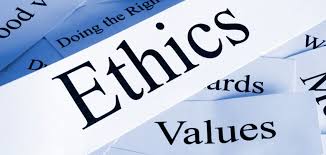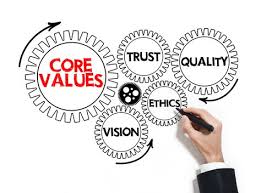The Future of Compliance: Re-Branding Compliance from Reactive to Proactive (Part I of III)

As everyone knows, I am an eternal optimist. Being a cynic always leads to negative energy and results. As a former federal prosecutor, I am deeply committed to the idea of doing the right thing. There is no meaningful alternative and I am mystified by individuals who can avoid or convince themselves that engaging in wrongdoing is somehow acceptable.
With that background and foundation in place, it is little wonder why I was so attracted to the field of ethics and compliance. It is a profession that, by definition, is optimistic and attracts professionals with similar mindsets and attitudes.
Lawyers are trained to be pessimistic and to assume worst-case scenarios. But I am passionate about the legal mindset, the discipline of analysis and the structure surrounding legal issues. Legal and compliance are natural allies and disciplines. Good lawyers can make good compliance professionals but being a lawyer is not a pre-requisite.
The most important skill for a compliance professional – (aside from patience) is interpersonal – the ability to persuade and work with other professionals to build alliances, all in the name of implementing a compliance program that can detect and prevent potential violations.

I have been reading about all of the accomplishments of compliance professionals, especially over the last ten years. From a backwater profession, compliance professionals have taken over front and center a variety of corporate functions and responsibilities. In the process, compliance has brought ethical concerns to the forefront of business decisions and injected ethical issues into traditional business interactions.
Compliance has created its own sphere of influence, separate from legal and with line-of-sight across the organization. Of course, compliance is always at risk of strangulation by deprivation of resources or countervailing business interests that feel threatened. The greatest threat to compliance continues to be a lack of resources and authority within the organization.
Compliance faces a new and real challenge given the fast-paced, internet-driven economy. With access to technology, vast computer processing capabilities and the ability to analyze and monitor large amounts of data, compliance has the capability to build a fresh and robust refocus – from a reactive to a proactive program.
Traditionally, compliance has been focused on reacting to potential risks or misconduct. Audits are conducted with a historical perspective, attempting to identify problems from reviewing historical data, and then applying lessons learned to going forward operations. Such a perspective, however, is fast becoming outdated.
New technologies and monitoring strategies are the new, cutting edge of compliance. With automation, companies are able to generate real-time data concerning ongoing activities. This does not require massive investments but does require investment in automated technologies – natural areas are third-party due diligence, conflict of interest, hotlines and case management/investigations, gifts, meals and entertainment expenses, and policy and program management. This is separate from financial transactions, especially those involving distributors, discounts and rebates.

I am somewhat reluctant to push this new perspective because from what I see in the real world – CCOs are still struggling to get adequate resources and appropriate authority. Not to be a doomsayer, but until basic issues of resource and authority are addressed, the future of compliance is still in the trenches, fighting the good fight – convincing senior management of the importance of ethics and compliance, securing appropriate authority and capabilities to implement a state-of-the-art compliance program. Such a program, under the new definition of effective compliance, has to include automation, monitoring and testing/audit strategies that are cost-effective and nimble. It is in this process where CCOs can start to re-focus from a reactive to a proactive mindset.















